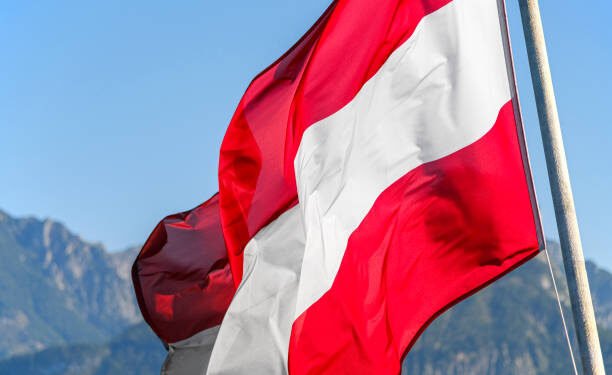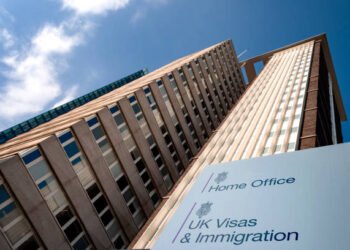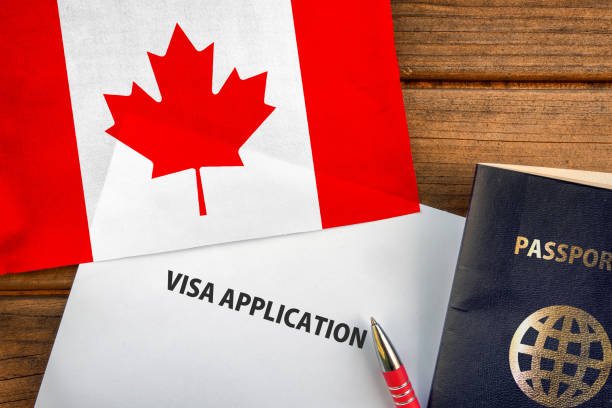Austria’s thriving economy, low unemployment rate, and high quality of life have continued to attract foreign job seekers. Whether you are a professional with advanced skills or someone seeking unskilled job opportunities, Austria offers various visa-sponsored pathways to work and live legally in the heart of Europe. In this post, you’ll discover everything needed to land a job with visa sponsorship, no matter your qualifications.
Overview of Austria’s Labor Market in 2025
Economic Outlook and Top Hiring Industries
Austria’s economy has remained one of the most stable in Europe, driven by its strong industrial base, tourism, and modern service sectors. In 2025, consistent growth has been recorded in healthcare, engineering, construction, information technology, and manufacturing. Additionally, agriculture, hospitality, and logistics have continued to rely heavily on foreign labor, providing ample opportunities for unskilled job seekers.
Labor Shortages and Demand for Foreign Workers
A persistent labor shortage has been observed in both skilled and unskilled sectors. As the native workforce ages and younger Austrians pursue higher education, a gap has emerged, particularly in physically demanding or less prestigious roles. To address this, the Austrian government has increasingly supported immigration policies that promote labor migration.
Austria’s Openness to International Talent
Austria’s Red-White-Red Card system has been designed to facilitate immigration of skilled workers, with recent adjustments making the system more accessible to unskilled laborers as well. The country’s visa policies have reflected a strategic shift towards attracting both high-value professionals and workers willing to fill vital support roles.
Types of Jobs Available for Foreigners
High-Demand Skilled Jobs
Austria has welcomed professionals in industries such as IT, healthcare, and mechanical engineering. For example, software developers, registered nurses, and automotive engineers have remained in high demand due to industrial growth and aging populations. These roles have required formal qualifications, work experience, and, often, German language skills.
Common Unskilled Roles
Jobs such as waitstaff, cleaners, seasonal farm workers, warehouse staff, and kitchen assistants have typically not required advanced education. These roles have been filled by immigrants from outside the EU who meet minimum requirements. Despite being labeled as unskilled, these positions have provided steady income and long-term opportunities for those willing to work hard.
Year-Round and Seasonal Opportunities
Some industries; like agriculture and tourism—have offered seasonal contracts, especially in rural regions. Other industries, like retail logistics and domestic care, have offered year-round employment with options for contract renewal and eventual residency.
Visa Sponsorship Explained
Definition of Visa Sponsorship in Austria
Visa sponsorship has referred to the process by which an Austrian employer supports a non-EU citizen’s visa application. The sponsor (employer) has been required to prove that no suitable candidate could be found within Austria or the EU before offering a position to a foreigner.
Employer Support for International Hires
A sponsoring employer has been responsible for providing the job contract, facilitating the visa paperwork, and sometimes assisting with accommodation or relocation. Visa applications submitted with employer support have received priority processing under Austrian immigration law.
Red-White-Red Card and Other Visa Options
The Red-White-Red Card has served as the primary long-term work visa. It has provided residency for up to two years and allowed employment with a specific company. Other visas include the EU Blue Card for highly qualified professionals and the seasonal work permit for short-term jobs.
Skilled Jobs in Austria with Sponsorship
Shortage Occupation List (Mangelberufsliste)
The Mangelberufsliste has been published annually, listing professions experiencing labor shortages. Occupations such as mechanical engineers, civil engineers, IT specialists, and nursing staff have consistently appeared on this list. Workers applying under these occupations have enjoyed a simplified visa process.
Examples of High-Demand Professions
- Registered Nurses: Critical for Austria’s aging population and healthcare system.
- Software Developers: Essential for digital transformation across businesses.
- Welders and Metal Workers: Required in manufacturing and construction sectors.
- Electricians and Civil Engineers: In demand for ongoing infrastructure projects.
Qualification and Skills Requirements
Applicants must have presented recognized qualifications, usually accompanied by diploma recognition (Nostrifizierung) in Austria. Professional experience and language proficiency have further strengthened applications.
Expected Salaries and Work Conditions
Salaries have varied depending on role and experience. IT professionals have earned €45,000–€60,000 annually, while registered nurses have earned €35,000–€45,000. Employees have been entitled to standard benefits such as social insurance, paid holidays, and pension contributions.

Unskilled Jobs in Austria with Sponsorship
Accessible Entry-Level Jobs
Unskilled labor jobs have included roles in:
- Housekeeping and hotel cleaning
- Seasonal fruit picking and farm labor
- Kitchen help in restaurants
- Construction site assistance
- Retail stockroom and packaging
Language and Physical Requirements
While German fluency has not been mandatory, basic language skills have improved job prospects. Physical stamina and a willingness to work long shifts have been essential in these roles.
Visa Pathways for Unskilled Workers
Although unskilled roles have not traditionally offered long-term sponsorship, several pilot programs and bilateral labor agreements (especially with countries in Africa and the Balkans) have made legal migration possible. Seasonal work permits and temporary Red-White-Red Cards have been issued for certain sectors.
Work Visa Options for Skilled and Unskilled Workers
Red-White-Red Card
Designed for skilled professionals, this card has required a job offer, point-based eligibility (based on qualifications, age, experience), and a minimum salary threshold. In 2025, relaxed criteria have opened the card to semi-skilled workers in select industries.
EU Blue Card
Granted to highly qualified non-EU professionals with higher education and a high-paying job offer, the EU Blue Card has offered fast-track residency and mobility across the EU. The minimum salary threshold has been adjusted annually.
Seasonal Work Visa
This visa has allowed foreign nationals to work in Austria for up to 6 months in roles such as agriculture and hospitality. Applications have been employer-led, and visa extensions have been rare.
General Work Permit
This permit has been less commonly used but has remained an option for roles not covered by other visa schemes. Approval has depended on the labor market test and employer sponsorship.
Eligibility Criteria and Requirements
Educational and Professional Credentials
For skilled positions, diplomas and professional licenses have been evaluated for Austrian equivalence. For unskilled jobs, basic literacy, physical health, and willingness to work have been sufficient.
Job Offer and Employer Support
Applicants have been required to present a legally binding job offer from an Austrian company. Employers have needed to demonstrate that the position cannot be filled locally.
Language Skills and Integration Willingness
Although German language tests have not been required for every visa, applicants have been encouraged to demonstrate willingness to learn the language, which has been seen as an integration factor.
Health and Character Checks
Medical fitness and a clean criminal record have been prerequisites. Health insurance coverage has also needed to be arranged before arrival.
How to Find a Job with Visa Sponsorship in Austria
Top Job Search Platforms
- AMS (Public Employment Service Austria) – Austria’s official job portal with filters for non-EU candidates
- EURES (European Job Mobility Portal) – A useful tool for cross-border employment
- Karriere.at and StepStone.at – For both entry-level and professional roles
Targeting Companies Willing to Sponsor
Job listings explicitly stating “visa sponsorship available” should have been prioritized. Large companies, hotels, farms, and logistics centers have historically sponsored foreign labor.
Writing a CV and Cover Letter to Austrian Standards
CVs must have been concise, structured, and translated into German or English. Cover letters should have emphasized adaptability, willingness to relocate, and specific job skills.
Preparing for Online Interviews
Virtual interviews have often been conducted for foreign applicants. Punctuality, formal attire, and clear communication have been critical to success.
Employer Responsibilities in Visa Sponsorship
Who Can Sponsor Foreign Workers?
Only Austrian companies registered with relevant authorities and capable of proving the need for foreign labor have been authorized to sponsor workers.
Required Employer Documentation
The employer has submitted:
- Employment contract
- Justification for hiring a foreign national
- Company registration and tax documents
Sponsorship Processing Time
Visa decisions have typically been made within 8–12 weeks. Expedited processes have been available for shortage occupations.
Rights and Benefits of Sponsored Employees
Legal Residency and Work Authorization
Holders of work visas have received legal residency and permission to work in Austria under specific conditions. Residence permits have also allowed access to rental housing and public services.
Access to Social Services
All legal workers have been entitled to Austria’s universal healthcare, accident insurance, pension contributions, and other social safety nets.
Family Reunification Options
After a period of stable employment, visa holders have been permitted to bring close family members under family reunification visas.
Long-Term Residency Opportunities
After five years of legal residence, many workers have become eligible for permanent residency. Proficiency in German and cultural integration have been assessed.
Challenges and How to Overcome Them
Language Barriers
In most workplaces, German has been the primary language. While basic English sufficed for hiring in some sectors, long-term success required German language skills. Free or subsidized language classes have been offered by many municipalities.
Cultural Adjustment
Understanding Austrian work culture, which values punctuality, formality, and direct communication, has been essential. Cultural integration courses have been recommended.
Bureaucracy and Paperwork
Austrian immigration procedures have been detailed and document-heavy. Using a qualified immigration lawyer or advisor has simplified the process.

Expert Tips for Job Seekers in 2025
How to Stand Out
- Learn basic German before applying
- Highlight experience in similar roles
- Emphasize flexibility, reliability, and team spirit
Certifications That Improve Job Prospects
- First Aid Certification
- Forklift Operation License
- Food Handling or HACCP certificates
- Nursing Assistant Training
Avoiding Job Scams
Applicants have been warned to avoid agents demanding upfront payments. All applications should have been verified through official platforms.
Conclusion
Austria has continued to welcome both skilled and unskilled workers from around the world in 2025. With clear pathways, supportive employers, and strong labor protections, the country has offered a realistic opportunity for immigrants seeking legal employment and long-term settlement. Whether highly qualified or seeking entry-level work, foreign applicants have found success by preparing thoroughly and applying through proper channels.


















